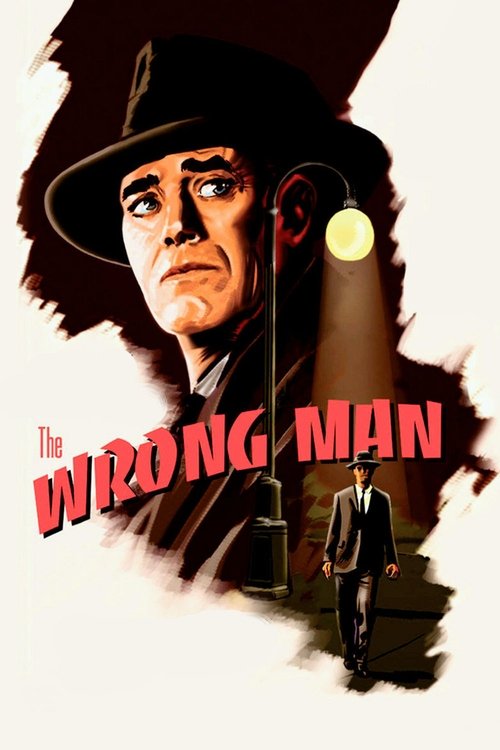
Title: The Wrong Man
Year: 1956
Director: Alfred Hitchcock
Writer: Angus MacPhail
Cast: Henry Fonda (Manny Balestrero), Vera Miles (Rose Balestrero), Anthony Quayle (Frank D. O'Connor), Harold J. Stone (Detective Lt. Bowers), Charles Cooper (Detective Matthews),
Runtime: 105 min.
Synopsis: In 1953, an innocent man named Christopher Emmanuel "Manny" Balestrero is arrested after being mistaken for an armed robber.
Rating: 7.143/10